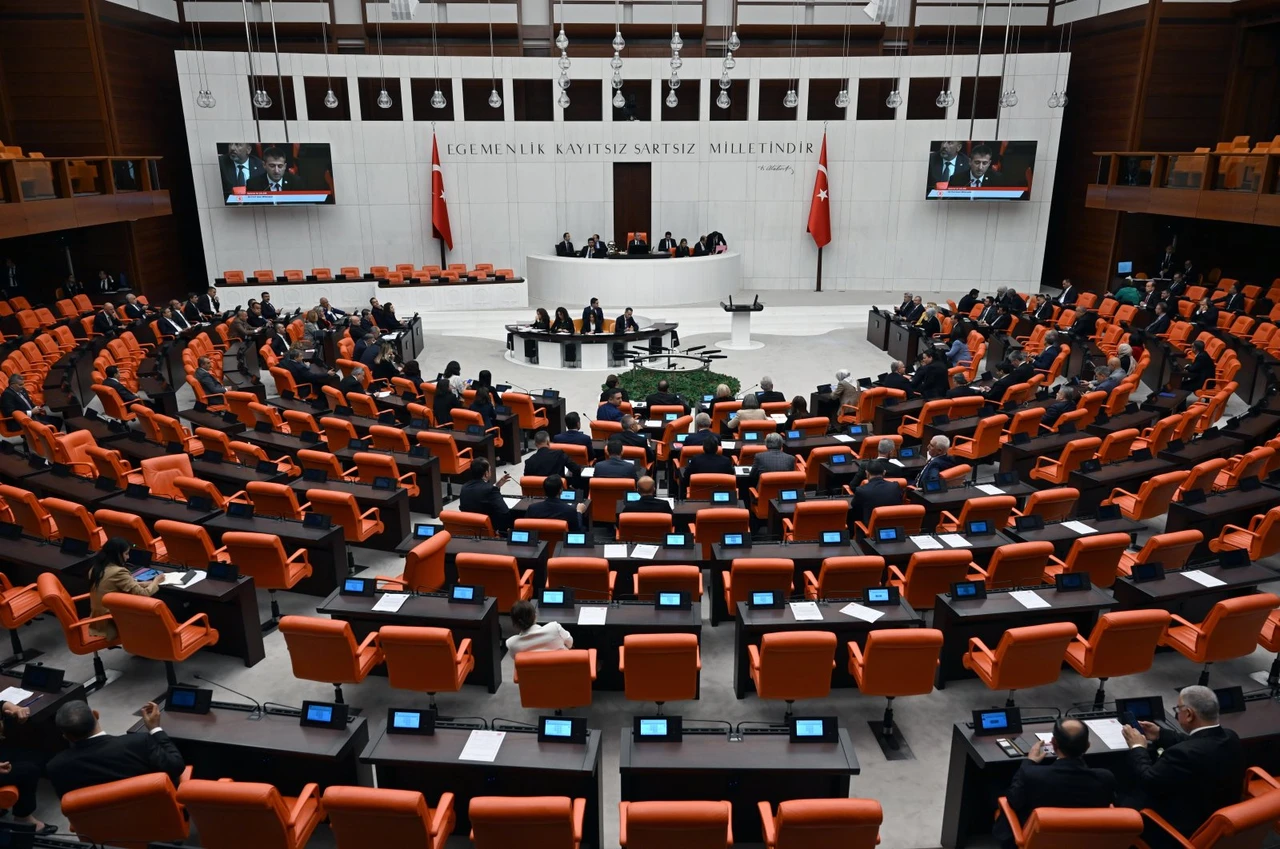Türkiye to end prison sentence reductions for ‘good behavior,’ ‘unjust provocation’
 Lawmakers are seen during a session at the Turkish Parliament, in Ankara, Türkiye, June 22, 2023 (AA Photo)
Lawmakers are seen during a session at the Turkish Parliament, in Ankara, Türkiye, June 22, 2023 (AA Photo)
The ruling Justice and Development Party (AK Party) has proposed significant changes to its legal system, aiming to eliminate sentence reductions based on “good behavior” (iyi hal) and “unjust provocation” (haksiz tahrik), as reported by Türkiye Daily.
The reform is part of the newly announced Judicial Reform Strategy Document, which outlines stricter penalties for serious crimes and seeks to address public concerns over lenient sentencing.

Harsher penalties for serious crimes with removal of unjust provocation sentence reductions
Under the new legal framework, courts will no longer grant sentence reductions to defendants who claim they committed crimes under unjust provocation.
Previously, such claims allowed convicted individuals to receive lighter sentences, particularly in cases of violent crimes. With the reform, those convicted of committing crimes under unjust provocation will now face higher minimum and maximum prison sentences.
- For crimes that require life imprisonment, the minimum sentence will increase from 16 years to 22 years.
- For crimes that require aggravated life imprisonment, the minimum sentence will increase from 22 years to 30 years.
This means that those found guilty of serious offenses will no longer be able to use unjust provocation as a legal loophole to reduce their punishment.
The removal of good behavior sentence reductions also means that convicted individuals will no longer receive lighter sentences based on their courtroom demeanor, attire, or conduct during legal proceedings. This change aims to ensure that penalties reflect the severity of the crime rather than subjective assessments of a defendant’s behavior.

Pinar Gultekin case’s role in shaping judicial reform
The decision to eliminate these sentence reductions follows public outcry over the Pinar Gultekin case. Gultekin, a university student, was murdered by Cemal Metin Avci in 2020.
The case became controversial when Türkiye’s Court of Cassation’s 1st Criminal Chamber reduced Avci’s sentence by applying an unjust provocation discount instead of recognizing the crime as a brutal murder. Following intense criticism, the Chief Public Prosecutor’s Office appealed this ruling, reinforcing calls for judicial reform.
Justice officials have indicated that the new changes were influenced by similar high-profile cases where perceived leniency toward perpetrators sparked significant public backlash. The reform aims to prevent such controversial sentencing decisions in the future.

Turkish government aims to restore public confidence in judiciary
The government has framed this reform as a step toward restoring public confidence in the legal system. The abolition of good behavior and unjust provocation sentence reductions is expected to have a direct impact on cases of gender-based violence, child abuse, and other serious crimes that have caused public outrage.
Legal experts believe that these changes will lead to a more consistent and stricter sentencing approach, particularly in cases of femicide and other violent crimes. The reforms are part of a broader effort to ensure that punishments align more closely with public expectations of justice and fairness.
The reform process is expected to move forward in the coming weeks, with the legal amendments set to be formalized through legislative procedures.



